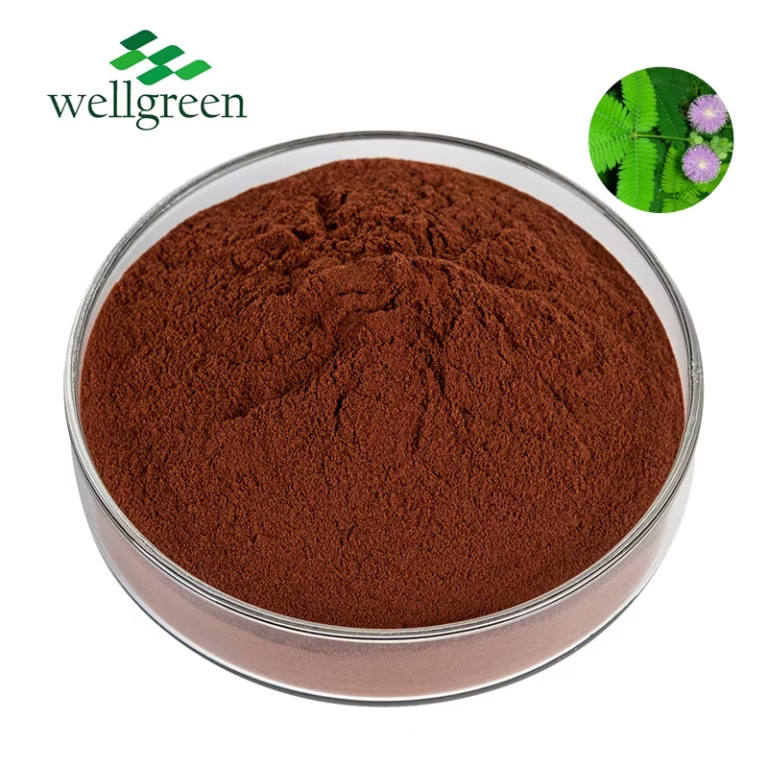
The bark of this Amazonian plant, commonly known as quebracho blanco, have been employed for centuries in folk medicine across various regions.
Ethnobotanical studies highlight the efficacy of M. tenuiflora preparations in treating a broad range of ailments, including inflammation.
Indigenous practitioners administer the extract in various forms such as teas to address conditions.
Some key uses of M. tenuiflora include wound healing, and it is also thought to possess anti-inflammatory properties.
Comprehensive Profiling of Mimosa tenuiflora Root Bark Extracts
This study focuses on analyzing the phytochemical composition of Mimosa tenuiflora root bark extracts. The isolation methods employed involved multiple solvents, including methanol. The resultant extracts were then subjected to a battery of analytical methods such as thin-layer chromatography (TLC) to identify the predominant phytochemical molecules. Preliminary results reveal the presence of a range of secondary metabolites, including flavonoids, which are known for their pharmacological properties. This comprehensive phytochemical analysis aims to provide valuable insights into the potential of Mimosa tenuiflora root bark as a source of herbal remedies.
Traditional Uses and Potential Medicinal Benefits of M. tenuiflora Root Bark
M. tenuiflora, a tree renowned for its distinctive root bark, has been employed in traditional medicinal practices for epochs. Indigenous communities have long understood the medicinal properties of this valuable resource. The root bark is customarily prepared and administered to alleviate a range of ailments, including infections.
Contemporary research is commencing to uncover the potential of M. tenuiflora root bark in providing medicinal benefits. Studies have suggested that certain constituents present in the bark may possess antiviral properties, influencing its potential to combat a diverse array of diseases. Additionally, preliminary research suggests that M. tenuiflora root bark may also possess brain-boosting effects, though more comprehensive studies are required to substantiate these findings.
Pharmacological Activity of Mimosa tenuiflora: A Review of Root Bark Studies
Mimosa tenuiflora, commonly referred to as the jurema shrub, has a extensive history of traditional medicinal use in South America. The root bark of this variety is particularly valued for its diverse pharmacological properties. Numerous investigations have examined the potential actions of M. tenuiflora root bark, revealing a range of molecules with promising biological activity.
- One domain of particular attention is the immunomodulatory capability of M. tenuiflora root bark extracts.
- Preliminary data suggests that these preparations may modulate the immune response, potentially providing comfort from diverse inflammatory disorders.
- Moreover, studies have suggested that M. tenuiflora root bark may possess free radical scavenging characteristics, which could play a role to human health by reducing oxidative damage.
The multifaceted nature of M. tenuiflora root bark profile and its potential for therapeutic treatments warrant further research. As research advances, a more comprehensive understanding of the pharmacological activity of M. tenuiflora root bark may emerge, possibly leading to the development of novel and effective medicinal interventions.
Extraction and Analysis of Medicinally Potent Compounds from *M. tenuiflora* Root Bark
This research focuses on the extraction of medicinal substances from the root bark of *M. tenuiflora*. Several extraction methods, such as organic liquids, will be utilized to purify a variety of extracts. The get more info identification of these extracts will involve assays like spectroscopy and structure elucidation. The pharmacological effects of the isolated molecules will also be assessed using in vitro systems.
This project seeks to identify and characterize promising substances from *M. tenuiflora* root bark with potential applications in drug development.
Delving into the Anti-inflammatory and Antioxidant Properties of Mimosa tenuiflora Root Bark
Mimosa tenuiflora, commonly known as the Horse tree, is a species native to tropical regions. Recent research has focused on its {potentialuses for human health, particularly concerning its cytoprotective and radical mitigating properties. The root bark of Mimosa tenuiflora is a rich source of bioactive constituents such as phenols, which have been shown to exert potent actions against inflammation.
- Studies have demonstrated that extracts from Mimosa tenuiflora root bark can potentally reduce the production of inflammatory cytokines in both *in vitro* and *in vivo* models.
- Furthermore, these extracts have exhibited notable antioxidant effects by eliminating harmful free radicals, protecting cells from oxidative stress.
These findings suggest that Mimosa tenuiflora root bark holds promise as a {naturaltreatment for various inflammatory and oxidative stress-related conditions. However, further research is needed to fully elucidate its mechanisms of action and optimize its therapeutic applications.
